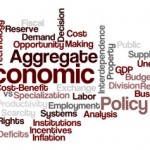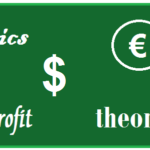Resolving creeping communism

The thirtieth anniversary of the fall of the Iron Curtain coincides with a popular resurgence of communism and a drift into more socialism. A collective amnesia sees a return of the Soviet Union’s failed policies in a Marxist Labour party in Britain. Increasing socialism is expressed by US Democrats contending for the primaries.
This article explains the basic economic fallacies common to both. It clarifies why state ownership of the means of production does not resolve the problem of economic calculation in a socialist economy. It also explains the errors in socialistic condemnation of free markets.
And finally, it points out that very few of us realise we are more socialist than we think when we endorse government control of possibly our most important common commodity, which is our everyday money. But there is a simple solution: stop accommodating crony capitalists.
Introduction
This week saw the thirtieth anniversary of the breeching of the Berlin Wall. The elapse of time means most people younger than their mid-forties fail to understand what it was all about. Indeed, many folk older than that will have forgotten that the reason the Berlin Wall fell was because the communist states in eastern Europe and the old Soviet Union were no longer able to suppress their people. And the people were suppressed because suppression of personal freedom is central to communism, the creed that says people must make sacrifices for the common good. Besides the passage of time, the uncomfortable part which makes people want to forget its horrors is that communism is the both the basis and the final destination of modern socialism.
Ever since Lenin and his Bolsheviks obtained power, they forced communism on the Russian population. People lost the rights to their property and their personal freedom, both of which became the property of the state. They were commanded by planners, administrators and bureaucrats as to what they could and could not do. In the absence of personal incentives, the Soviet economy went downhill rapidly, and the bureaucrats faced with allocating economic resources ended up creating surpluses of unusable and unwanted goods, and shortages of what were wanted. In their efforts to correct this mess, the people who communism claimed to free from the yoke of the bourgeoisie were blamed and accused of insubordination and either shot or deported to the gulags. In the USSR alone it is estimated that between twenty and sixty million people died of starvation, in the gulags, or were executed.
People lived in constant fear of the secret police and their informants. It was hardly surprising that the fall of the Berlin Wall was a scene of much rejoicing and the visual manifestation of freedom regained.
The reason we should remember how Marxist and Stalinist communism affected ordinary people is they are being offered a choice to vote for it again. In the UK, hard-line Marxist-Leninists control the main opposition party, and from what one can see from the Eastern side of the Atlantic, various Democratic Party contenders for the presidency are offering a softer version of the same socialist creed to their supporters.
Some observers claim our collective amnesia on such important matters is due to a cycle of human behaviour, but more likely it is due to an astonishing level of public ignorance, not helped by the poor quality of debate at the political level. The reason Theresa May bodged her general election in 2017 is she did not address the destructive delusions of the Labour Party’s Marxists, which can only be explained by ignorance of why Marxism is so economically disastrous. She will have either forgotten the real reason for those joyous scenes in Berlin thirty years ago or failed to understand the message. While being a paid-up Tory notionally in favour of free markets, in common with many other Tory MPs her politics appear to be those of a controlling Christian socialist, in common with the political mainstream in the EU.
She was not alone, and the entire British political establishment, like a pale imitation of the politburo, had become a managerial class believing more in itself than in democratic accountability. This, not trade, is the central issue behind Brexit. And it is still true of America’s deep state, despite President Trump’s democratic mandate and his attempts to change it. It is a condition that pertains in any government that claims the sacrifice of personal freedom is in the interest of the common good.
The problem with Marx and his half-baked ideas
At its bedrock modern socialism is based on Marxism, which despite all evidence of its viciousness retains widespread support. Not only do university students everywhere have a tendency to support fervent socialism, but in the UK, pollsters estimate a substantial majority of university lecturers prefer a Marxist Labour party compared with the Conservatives. It’s no wonder that for many decades the Soviet KGB so effectively recruited their useful idiots and spies from the UK’s top universities.
It seems extraordinary that in defiance of history and the advance of philosophical knowledge anyone should be so delusional to believe in the politics of Karl Marx, the founder of modern communism and the basis of modern socialism. More than anyone, through wrong-headed ideas he bears responsibility, indirectly admittedly, for the deaths of an estimated one hundred million people in the last century, and at one time the severe suppression though economic and social servitude of fully one third of the world’s population. And if you also include those who have suffered under the yoke of Marxist-inspired modern socialism, the philosophy that says the state is more important than the individual, you could argue nearly the whole world is under Marx’s destructive influence today.
His philosophical stance was comprehensively set out in one of his earlier works, A Contribution to the Critique of Political Economy, published in 1859. The fundamental principle behind Marxism is stated early in the preface, where he defines his deduction from the Hegelian dialectic: “It is not the consciousness of men that determines their existence, but their social existence that determines their consciousness.”[i] In other words, social organisation takes precedence over the individual, and it therefore follows that the individual is subordinate to the social organisation.
Marx argued that it followed from this logic that the classes which formed on the back of material interests force members of those classes to think and act in their narrow class interests and not independently in their personal interest, there being no such thing. For Marx, ideologies evolved on class lines, where the interests of the minority, the bourgeoisie, dominated. And as the bourgeoisie profits from the labour of the proletariat, it is in their interest to keep the proletariat suppressed. The accumulation of wealth in the hands of the bourgeoisie was entirely due to the exploitation of the proletariat.
Marx’s world was a black and white one of haves and have-nots, the exploiters and the exploited. As Emmanuel Kant (1724-1804) put it, “If one man has more than necessary, another man has less”[ii]. The only way this apparent wrong could be righted would be through the collapse of the capitalist system, which led to these imbalances in the first place. The final solution was a classless society of the proletariat, handing them the means of production administered on their behalf by a revolutionary government. Headed, of course, by Marx himself.
Marxian dogma was and still is riddled with intellectually derived half-baked ideas. Partly, this was due to the state of human knowledge when Marx derived his scheme for world domination, which formed the basis of any dialectical debate. Darwin contemporaneously proposed his evolutionary theory, that Man had evolved from animals and was not a species apart favoured by God. This played neatly into Marxian philosophy and to this day Marxists are atheistic.
It was also before the development of psychology by Sigmund Freud and Josef Breuer. It was previously thought that all human brains were the same, just as we have other internal organs with specific functions within the body. The concept, that humans differed in their intelligence, their acuity, while commonly observed was unexplained by medical science. Even mental illness was believed to be a disorder emanating from the body and not the brain and suicides were routinely dissected to establish which organ was the cause. To Marx, drawing on Hegel’s dialectical approach, it could have seemed logical that we are all the same, and that the obvious social differences are down to our upbringing in one or the other class.
He never defined class, which is too slippery a concept to pin down. Instead, he separated humanity into the exploited majority, the proletariat, and the minority that controls the proletariat, the bourgeoisie. He expected the proletariat to eventually rebel, forcing the bourgeoisie into the lower class, to be ruled over by a socialist administration. He believed that this would happen, because under capitalism, he argued, the impoverishment of the workers was inevitable, leading to a workers’ revolution.
Yet, at the same time, he believed in the iron law of wages, most associated with David Ricardo. According to this law, wages were set by the availability of labour and the payments required to subsist. Higher wages than this basic level would lead to an increase in the availability of labour over time, while lower wages would reduce the labour pool. In this way, the cost of labour was expected to rebalance always at a subsistence level. Labour was regarded as a simple commodity, whose supply was regulated by its demand. However, Marx’s belief in the iron law of wages is at odds with his supposition that the proletariat would be gradually impoverished by the bourgeoisie. You cannot subscribe to both.
Subsequent improvements in economic knowledge and empirical evidence have disproved both theories anyway. Marx’s approach was to arrogantly assume workers are unthinking work-slaves, which they are not. They are individuals with individual aspirations and as their living standards improve those aspirations soar. And as Freud and Breuer showed later, they have brains separate from their physicality, with individual mental abilities that govern their needs and wants. Marx even despised the trade unions of the day, arguing that striking for higher wages was colluding with members of the bourgeoisie by negotiating with them, when instead they should be seeking their destruction.
His thinking had impatiently evolved from the proposition that the destruction of the bourgeoise class would occur naturally in time, to encouraging a violent class revolution to bring it about. Workers going on strike compromised both alternatives, and his personal ambitions of world leadership were threatened.
In some respects, modern ignorance over Marxism is worse than Marx’s own. Classical economics have evolved, thanks mainly to Carl Menger and his followers in the Austrian school, and today we have a greater understanding of the role of the consumer, not just as an end-user but also as an unconscious setter of prices and regulator of demand. And lest we forget, we have the certain knowledge not only that communism fails, but it leads to the impoverishment of the masses.
The economic issues, from which all others flow, need to be laid bare. Why communism of any sort fails and whether the same reasons for its failure apply to the Christian form of socialism predominant in the West are the two principal issues facing the electorates in the UK today and the US next year.
The basis of economic calculation
Fundamental to both Marxism and other forms of socialism is the theory that prices are set by costs, particularly of labour, and that the productive output of labour is an even quantity. Only then can it be assumed we are all equal. In reality, people always value some goods more than others, requiring higher pay to attract the labour required with its specific skills to provide them. The communists would have you believe that if the state deems it necessary, it can command greater quantities of evenly paid, evenly skilled human resources to that end. Alternatively, it can command the consumer not to buy goods in greater than expected demand by the expedient of rationing.
A labour theory of value is also the basis behind less obvious forms of socialism. It is the working assumption behind the provision of all government services and also professed to be the case by businessmen awarded government contracts and subsidies. Therefore, the pricing of services monopolised by governments and their allied providers is almost always supplied on a cost basis.
Consequently, governments and their agencies are poor providers of goods and services because they have no incentive to contain or reduce costs. Why the cost basis of prices is not the principal price determinant was proved by Carl Menger in the 1870s. Instead, he clearly demonstrated that prices are set by consumers exercising personal choice. This has always been resisted by statists, because it denies the possibility that prices can be calculated with certainty in advance.
A consumer’s preferences are the central issue. It is not just a question of price, but of priorities, desires and the satisfaction of a general uneasiness that drive consumer demand for goods and services. These are factors that continually change. Furthermore, price measured in monetary terms is a secondary issue, in this context being no more than a yardstick for comparison to facilitate consumer choices. The fact that consumers choose between goods tells us that goods are in effect priced against each other, with money being the temporary agent not only for transforming a producer’s output in the form of profits or salary into the items he or she wishes to consume, but for facilitating the choice between them as well.
When the true role of money is understood to be that of an agent, firstly as a facilitator for the division of labour and then of choice between consumer items, the impossibility of socialism to calculate prices becomes more obvious, even for the few state planners who understand that the cost basis cannot apply.
It takes great skill, experience and knowledge of specialist markets for a focused entrepreneur to foretell demand in his particular niche profitably. He risks his capital and commits his valuable time to supplying profitably his anticipation of market demand. Alternatively, a state administrator or bureaucrat is always unsuited to taking risks with state resources and cannot act in an entrepreneurial fashion. He has none of the qualifications necessary to get it right for one product, let alone the many the production of which he may be required to oversee.
Socialists counter this proposition by saying there is no reason the successful businessman can perform the same function for the state. In his concluding notes to The General Theory, even Keynes proposed the state should replace the saver as the provider of capital for the businessman. The businessman becomes beholden to the state, with his profit “obtained much cheaper than at present”.[iii] Clearly, the principal incentive which drives all successful entrepreneurs ends up under the control of the state, to be chipped away by politicians seeking favour from a proletariat envious of an entrepreneur’s success.
The greater the degree of socialism, the less likely an entrepreneur is likely to cooperate. And when the state owns the means of production, his incentive disappears altogether. Forced into a managerial role by the threat of being dispatched to a gulag or even executed cannot change this simple fact. He becomes a functionary whose interest is pure survival in a dysfunctional state system of production. In any event, he has no basis for estimating the value of his production.
Oskar Lange, a Polish economist of the communist era, accepted the evidence that socialism was unable to calculate consumer prices and proposed that markets be permitted to do so. But where he failed was not understanding that consumer prices in a free market also determine and set the value of their factors of production, which under Lange’s proposal would remain in the possession of the state. Thus, the distribution of productive resources in a socialist state would always lead to failures in the distribution of goods.
Lange’s error is typical of current attempts to find a compromise between capitalism and socialism, a mistake that is ignored or not understood by politicians of all stripes. The vast majority of those that advocate free markets do not do so entirely. And they fail to understand that the distribution of money itself is socialised, with its supply and interest rates being managed by an organ of the state, and not free markets.
The illusion that a compromise between socialism and free markets is possible is facilitated by the adaptability of ordinary people. They don’t fight City Hall; rather they find another way of doing things. It is impossible to track how their choices are affected by economic distortions imposed upon them by the state. But it is possible to demonstrate the counterfactual: that freed from statist intervention and over-bearing regulations an economy improves living standards for everyone considerably more rapidly than a state attempting to achieve it, even with the best intentions.
The complaint against capitalism
The socialist rant against capitalism is rarely a rant against free markets, except for committed socialists arguing that as a matter of principal the state should own the means of production. Most adherents, the Christian socialists, are driven more by a naïve desire for social fairness than a commitment to socialism per se. Theirs is a valid complaint against bankers and other businessmen who enrich themselves through their influence on government or gain government protection from competition through licensing and regulation. Instead of providing the goods and services demanded by consumers, these establishment capitalists prioritise their relationship with the state as a means of protecting and maximising their profits.
An apt description of this arrangement between the state and big business is crony capitalism. So long as there is a socialising political class, there will be businessmen seeking their share of the distributed cake. When a government hands out regional employment subsidies, a businessman will build a factory in a location to maximise the subsidy. Proximity to markets and other commercial factors become secondary considerations. Once the subsidised investment is made, he can then blackmail future politicians for more subsidies and government contracts by threatening to lay off workers if they don’t materialise. More subtly, he can advise politicians on industrial policy and regulation with the hidden objective of disadvantaging smaller competitors.
As the saying goes, an honest politician is one who, when he is bought, stays bought.[iv] And as long as the state is involved, a businessman can collude with his competitors to rig markets without fear of anti-trust litigation. In truth, the only valid complaint about capitalism is not about free markets, but about their corruption facilitated by the state.
The greatest corruption of free markets is through the socialisation of money. In a genuine free market, it is up to individual actors to decide their medium of exchange, and it is for this reason money in metallic form emerged to replace barter. Instead, since the first half of the twentieth century governments have taken for themselves the monopoly of money. Besides instances in war time, the first step in this global direction was when dollar convertibility into gold was suspended for Americans in 1933. Today, central banks abuse this monopoly by issuing it in whatever quantities they can get away with. Without their citizens’ knowledge or understanding central banks transfer wealth from them to itself, its government and their favoured cronies.
Monetary inflation is the precondition for financing the advancement of socialism. The inflationary argument is socialistic to the core, increasing the supply of money for the alleged common benefit while keeping quiet about the wealth transfer effect. The euthanasia of ordinary savers and their replacement as funding for investment by the state was a wish expressed by Keynes in his General Theory.[v] But it is pure socialism, already achieved through the destruction of personal savings, notably in America, the UK, most of Europe and by the damage through interest rate suppression to collective savings schemes such as pension funds.
And when the general level of prices rises, which is actually the manifestation of a currency’s loss of purchasing power, socialising governments justify their actions saying it stimulates us to consume. If prices rise so quickly as to expose this specious argument to the lowest intellects, it is then blamed on greedy profit-seeking capitalists.
Banks are licensed to create credit, which is simply another source of money, out of thin air, making bankers rich as a class and further stoking the public envy upon which socialism thrives. Despite this, the entire bureaucratic and administrative class of central planners have been taught that the socialisation of money is fully justified to address the shortfalls of capitalism, and by implication free markets. We are informed by its description that an uncontrollable cycle of business activity is proof that left to themselves free markets are economically destructive.
The truth is the economic destruction comes from a cycle of credit expansion emanating from the banks, augmented and encouraged by a central bank issuing base currency and suppressing interest rates. The financing of an economy is subverted by the imperative to finance government spending. Without the manipulation of money and credit and their replacement by sound money the cycle of credit and the symptoms suffered in the productive economy would simply cease.
These are problems created by socialism itself, but rarely found is the politician who fully understands it and is elected to address them. President Trump was mandated by a silent majority fed up with the federal socialising system, yet he calls for more credit creation and lower interest rates. His heart may have been in the right place, but he fails to understand that even the dollar is socialised.
The origin of the socialisation of money was born out of crony capitalism in banking, but it has been fully exploited by the socialists. Through the debasement of their currencies, it allows both Jeremy Corbyn and President Trump alike to advance their policies and proposals while concealing the hidden costs imposed on everyone.
The logical solution
The destination of socialism-lite is a continuing loss of freedom, both economic and personal. Ordinary people should count themselves lucky if the drift is contained, and more extreme versions towards communism prevented.
It is a fact of life that nearly the whole world is now socialistic to a greater or lesser degree. So ingrained is socialist redistribution that no politician can get elected on a mandate to reverse it. But a start can be made by attacking crony capitalism, which is the one justification above all others that persuades ordinary Christian democrats, the useful idiots recruited by Marxist fallacies, to abandon personal freedom in favour of a ruling state. It is the emotional justification for Marx’s division of the classes into the exploiters and the exploited, which if successfully addressed collapses the argument.
There is hope the point is understood by Britain’s current Prime Minister, when in June 2018 as Foreign Secretary he was reported at a private dinner to have said, “F— business”, when questioned about his view of major businesses lobbying to prevent Brexit by threatening jobs and investment. It was interpreted differently by a socialistic media.[vi]
If Johnson is re-elected, and if this was not a purely Brexit-related comment, there is some hope this course of action will be undertaken. It would address the monopolistic tendencies of big business to disadvantage their smaller competitors. Small and medium size businesses generally make up a Pareto eighty per cent of any economy, so a policy of allowing them to secure the benefits of freer markets should turn out to be immensely popular. Only then can socialistic tendencies begin to be reversed, and the big prize tackled, the socialisation of money.
[i] Hegel, as did Marx, reasoned from a thesis, then a negation of the thesis, and then a negation of the negation. This was meant to be irrefutable proof of a surviving conclusion. But if the historical and ordinary facts and any assumptions are wrong at the outset, the whole thesis obviously fails.
[ii] Kant’s aphorism was disproved by a number of economists who point out that exchanges are voluntary, and both parties benefit, otherwise exchange would not take place. It is also true of the relationship between employer and employee, though it can be more sticky.
[iii] JM Keynes, The General Theory of Employment, Interest and Money Palgrave 2007 edition, pp 374-377.
[iv] Attributed to Simon Johnson, who was US Secretary for War during the Civil War.
[v] See note iii.
[vi] Financial Times, 25 June 2018.
By Alasdair Macleod, www.goldmoney.com
Find more: Contributing Authors






























